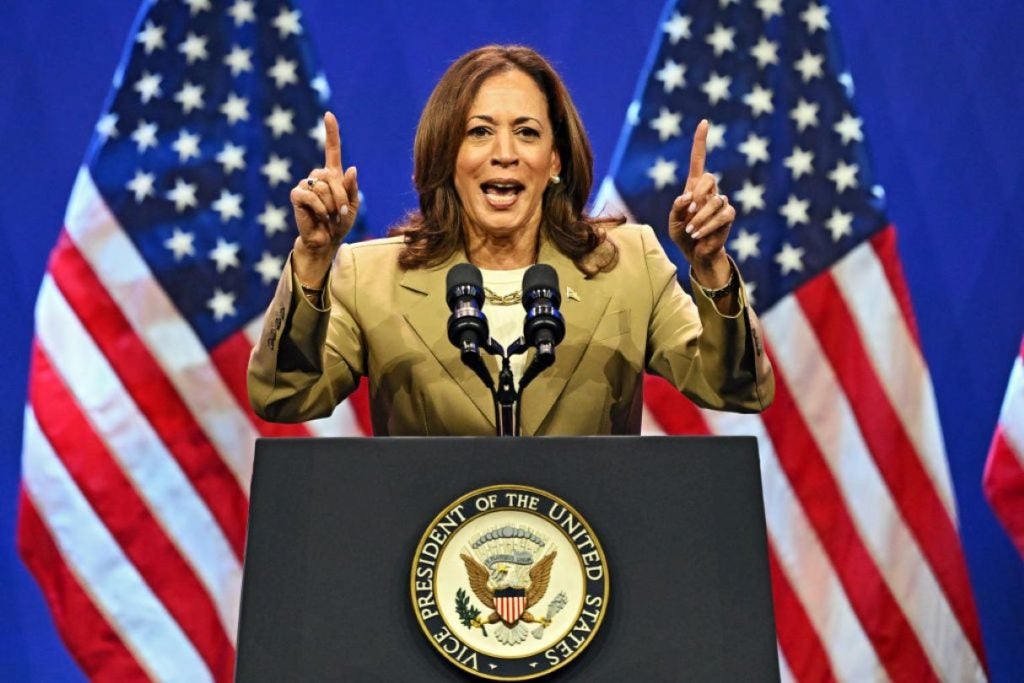“I want to offer my full support and endorsement for Kamala to be the nominee of our party this year,” said President Joe Biden, as he stepped out of the presidential race in a 21 July X statement.
In the last 24 hours, the current US president and several others have backed Vice President Kamala Harris as the Democratic nominee in their bid to beat Donald Trump’s Republican campaign. Harris responded to Biden’s tweet with a statement saying, “I am honoured to have the President’s endorsement and my intention is to earn and win this nomination.”
In her time in office, Harris has been outspoken about her support of abortion rights, becoming the first vice president to visit an abortion clinic. Alongside Biden, Harris condemned the Dobbs decision that overturned Roe v Wade judgement which provided the right to have an abortion.
During her 2019 presidential campaign run, Harris suggested a system that would require states to gain federal approval from the Justice Department before rolling out new abortion restrictions, as per a May 2019 fact sheet. More recently, in a March 2024 statement, Harris has spoken in support of improved access to the abortion pill Mifexprex (mifepristone), praising its distribution at two major retail pharmacies.
Harris “has kept the needs and experiences of patients and providers front and center … and we know that she will continue to fight like hell to rebuild a fundamental right that was stripped away, said Alexis McGill Johnson, Planned Parenthood’s CEO in an interview with Stat.
The reproductive rights organisation Reproductive Freedom For All has also spoken about its support for the new potential presidential candidate, alongside other prominent figures such as the human rights activist Martin Luther King III, Congresswoman Alexandria-Ocasio Cortez, and others. CNN reported that it has noted over 500 endorsements for Harris as of 21 July.
Lowering drug costs
In a June 2023 statement, the nursing organisation National Nurses United endorsed Harris as a candidate for vice president, praising the current Administration’s passing of the Inflation Reduction Act in August 2022. The bill allows Medicare to negotiate drug prices with drug manufacturers to help curb inflation. Harris has also previously boasted about the success of the Administration and its role in capping insulin prices to $35 a month through the Inflation Reduction Act, in a 20 July tweet.
Many have spoken out in support of the legislation, but some members of the pharmaceutical industry remain dissatisfied with the change. In August 2023, Pharmaceutical Research and Manufacturers of America (PhRMA) responded to the bill saying, the legislation was the result of a “rushed process” with the aims of “short-term political gain”. The pharmaceutical trade body argued that the medicines selected thus far already had significant rebates and discounts, because of private negotiations on Medicare Part D prices.
In an August 2023 statement, Harris stated that the administration still has plans to cap the total cost of prescription drugs at $2,000 a year. “There are many factors that drive up healthcare costs and make medications more expensive,” she added.
The war against opioids
Harris has also stated an intention to increase access to the opioid overdose drug Narcan (naloxone). In July 2023, Harris gathered Attorney Generals from seven states to discuss the national response plan for the rising threat of fentanyl. At the meeting, she announced a $50 million government investment into substance use and treatment.
Under the Biden-Harris administration, several developments like the approval of over-the counter Narcan, and a revamping drug disposal systems have taken place in a bid to fight the opioid crisis.









